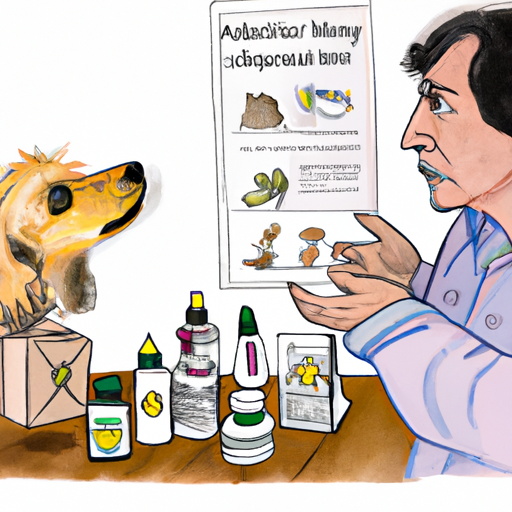As a caregiver, your responsibility extends to not only humans but also to your furry companions. One common issue that plagues dogs is allergies. Let’s dive into how you can help your dog cope with allergies.
Understanding Your Dog’s Allergies
Allergies in dogs manifest differently than in humans. Dogs may experience itching, redness, and discomfort. To identify and understand your dog’s allergies, you need to observe their behavior and symptoms. Here are common signs to watch out for:
- Itching and scratching
- Redness and inflammation
- Sneezing or coughing
- Vomiting or diarrhea
Common Allergens in Dogs
Just like humans, dogs can be allergic to a multitude of things. Here are some of the most common allergens:
- Food: Some dogs may be allergic to certain types of food like beef, chicken, or dairy.
- Environmental factors: Pollen, mold, dust mites, and grass can trigger allergies in dogs.
- Fleas: A flea allergy is caused by a reaction to the flea’s saliva.
| Common Allergens | Symptoms |
|---|---|
| Food | Diarrhea, vomiting, ear inflammation |
| Environmental Factors | Itching, redness, sneezing |
| Fleas | Excessive scratching, redness |
Treatment for Your Dog’s Allergies
Once you recognize your dog’s allergens, it’s time to seek treatment. Treatment can be medicinal, dietary changes, or changes in the environment.
- Medicinal: Your vet may prescribe antihistamines or steroids to relieve the symptoms.
- Dietary changes: If the allergen is food, a change in diet may be necessary.
- Environmental changes: This could mean keeping your dog indoors during high pollen seasons or using hypoallergenic cleaning products.
Preventing Allergies in Dogs
Prevention is always better than cure. Here are a few ways you can help prevent allergies in your dog:
- Regular grooming to remove potential allergens from your dog’s coat
- Maintain a clean environment
- Regular vet check-ups
FAQs
Q: Can dogs develop allergies at any age?
A: Yes, dogs can develop allergies at any age, though it is most common between 1 and 3 years old.
Q: Can my dog be allergic to his food?
A: Absolutely. Dogs can be allergic to certain types of food. An elimination diet can help identify the food causing the allergy.
Q: Can allergies in dogs be cured?
A: While allergies cannot be fully cured, they can be managed effectively with the right treatment and preventive measures.
Remember, you are not alone in this journey. Consult with your vet and reach out to other caregivers for advice and support. Together, you can make your dog’s life more comfortable and allergy-free.



